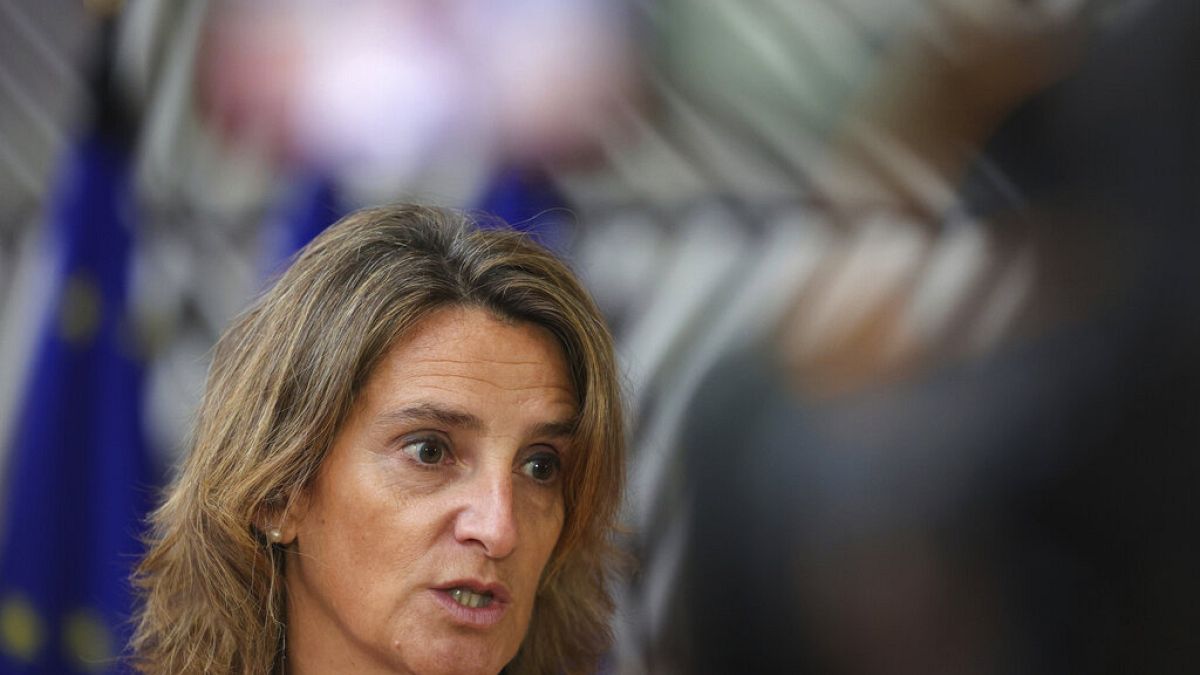Teresa Ribera, Spain’s climate expert, is set to become the EU’s second most powerful woman in Ursula von der Leyen’s new College of Commissioners.
When Ursula von der Leyen was deciding who to assign the highly coveted competition portfolio, the strongest economic candidates were considered.
The EU’s competition chief wields significant power: able to block mergers, fine major companies, and prohibit state subsidies that distort the market. Unlike other commissioners, they do not need the approval of governments or MEPs to make decisions.
Under Margrethe Vestager’s decade-long reign as EU Antitrust chief, the role gained even more influence. Vestager, known for her charisma and initiative, became one of the most recognisable EU figures. Her tenure saw high-profile cases against tech giants like Google and Apple and unprecedented COVID-19 aid to companies, which sparked both praise and controversy.
Teresa Ribera’s name emerged as a contender for the competition post late in the selection process, raising concerns due to her limited experience in competition law.
Ribera, one of the most influential ministers in Pedro Sanchez’s government, has focused primarily on environmental issues throughout her career — particularly in fighting climate change.
However, insiders in von der Leyen’s circle confirmed that the Commission president sought someone who could not only handle the technicalities of the competition role but also embody the influence and recognition Vestager brought to the position.
As her team lacked a candidate with the same blend of charisma and experience, with several new appointees having little government experience, Ribera was the prime suspect to take up that role.
Righ-hand woman
Initially, Ribera was seen as a possible replacement for Frans Timmermans, the architect of the European Green Deal. She has held various positions at international institutions, including the United Nations and the World Economic Forum, and played a key role in negotiating the Paris Agreement and the UN’s Sustainable Development Goals.
Ribera is a vocal opponent of fossil fuels and nuclear energy, gaining prominence in Brussels during talks on reforming the EU energy market.
In a sense, she has secured the position she was originally expected to fill, being tasked with the continuation of the Green Deal and its transformation into a Clean Industrial Deal.
Before her appointment by von der Leyen, Ribera was serving as Spain’s Vice President and Minister for the Ecological Transition and Demographic Challenge, meaning that she was already working on keeping her country on track for the 90% emission-reduction target by 2040 under the European Climate Law.
Now, by formally replacing Vestager and assuming many of Timmermans’ responsibilities – the two most powerful faces in the previous executive – Ribera is seen as von der Leyen’s likely right-hand woman, poised to become the leading figure among the six Executive Vice-Presidents.
The Competition challenge
While Ribera’s environmental expertise is well-established, competition law represents a new and complex challenge for her, also considering it will stay in the spotlight given von der Leyen’s promise of a “new approach” to merger policy.
One of her biggest challenges will be navigating recent EU Court of Justice rulings, which have restricted the Commission’s authority in antitrust matters, particularly in the wake of the Illumina-Grail merger decision.
This ruling has limited the Commission’s use of the “killer acquisition” tool, which Vestager previously used to scrutinise low-revenue takeovers, particularly in the tech and healthcare sectors.
In a post on social media platform X, Vestagers said that this “limits the possibility to act on killer acquisitions” while Draghi’s report also advocates “change in operating practices and updated guidelines to make the current Merger Regulation fit for purpose.”
With many calls to open the pandora’s box to re-open the EU’s merger rules, von der Leyen has asked Ribera in her mission letter to work to modernise competition policy and include a review of the Horizontal Merger Control Guidelines as well as a focus on addressing risks of killer acquisitions in a bid to find ways to live with the judgement.
Another key focus will be developing a new state aid framework to complement the Clean Industrial Deal and accelerate the rollout of renewable energy across the EU.
Although Ribera will handle platform economies and enforce actions under the Digital Markets Act, much of the responsibility for the digital economy appears to be shifting to Henna Virkkunen, reflecting a redistribution of duties within the Commission.
Marta Iraola Iribarren contributed to reporting
Checkout latest world news below links :
World News || Latest News || U.S. News
The post Socialist Ribera becomes von der Leyen’s new right-hand woman appeared first on WorldNewsEra.

